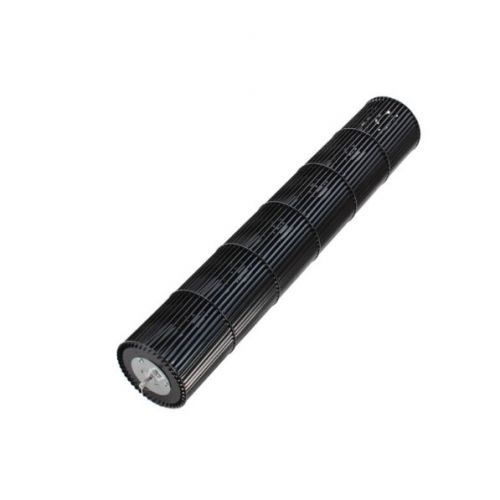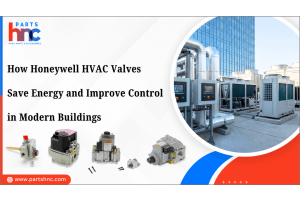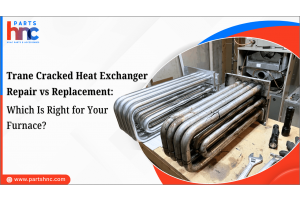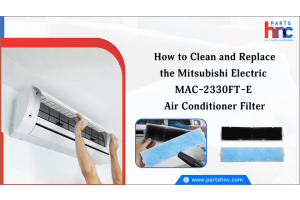Common Air Conditioner Compressor Issues and How to Fix Them
Is your air conditioner compressor not working? The air conditioner compressor is the heart of your cooling system, ensuring that your space remains comfortable. However, over time, you might encounter issues that disrupt its operation. Understanding how your compressor works, what causes its problems, and how to fix or prevent failures can save you from costly repairs.
In this article, we’ll cover everything you need to know, from troubleshooting AC compressor failures to tips for increasing your compressor’s life.
Table of Contents
How Does an Air Conditioner Compressor Work?
An AC unit compressor plays a crucial role in the refrigeration cycle by compressing the refrigerant and circulating it through the system. When the refrigerant is compressed, it changes from a low-pressure gas to a high-pressure gas. This process allows it to release heat when it flows through the outdoor condenser coils and absorb heat indoors.
A properly functioning compressor is essential for cooling efficiency, but when it malfunctions, your home AC compressor may struggle to maintain comfortable temperatures, leading to performance issues and higher energy bills.
How Clogged Circulation Strains the AC Unit Compressor
Blocked airflow or restricted refrigerant lines can put unnecessary strain on your AC unit compressor. Poor circulation means the system works harder to cool your home, causing the AC compressor to overheat or fail prematurely. Some of the typical reasons behind clogged circulation include:
- Dirty filters: Air conditioning filters that haven’t been replaced reduce the flow of cool air.
- Blocked condenser coils: Dirt and debris buildup on the coils make it difficult to expel heat.
- Refrigerant leaks: When refrigerant levels drop, the compressor runs longer, increasing wear and tear.
Addressing circulation issues promptly is critical to avoid long-term damage that can lead to home AC compressor replacement.
5 Warning Signs of an AC Unit Compressor Failure
Detecting early signs of AC compressor failure allows you to fix issues before they worsen. Here are five warning signs that suggest your air conditioner compressor is not working as it should:
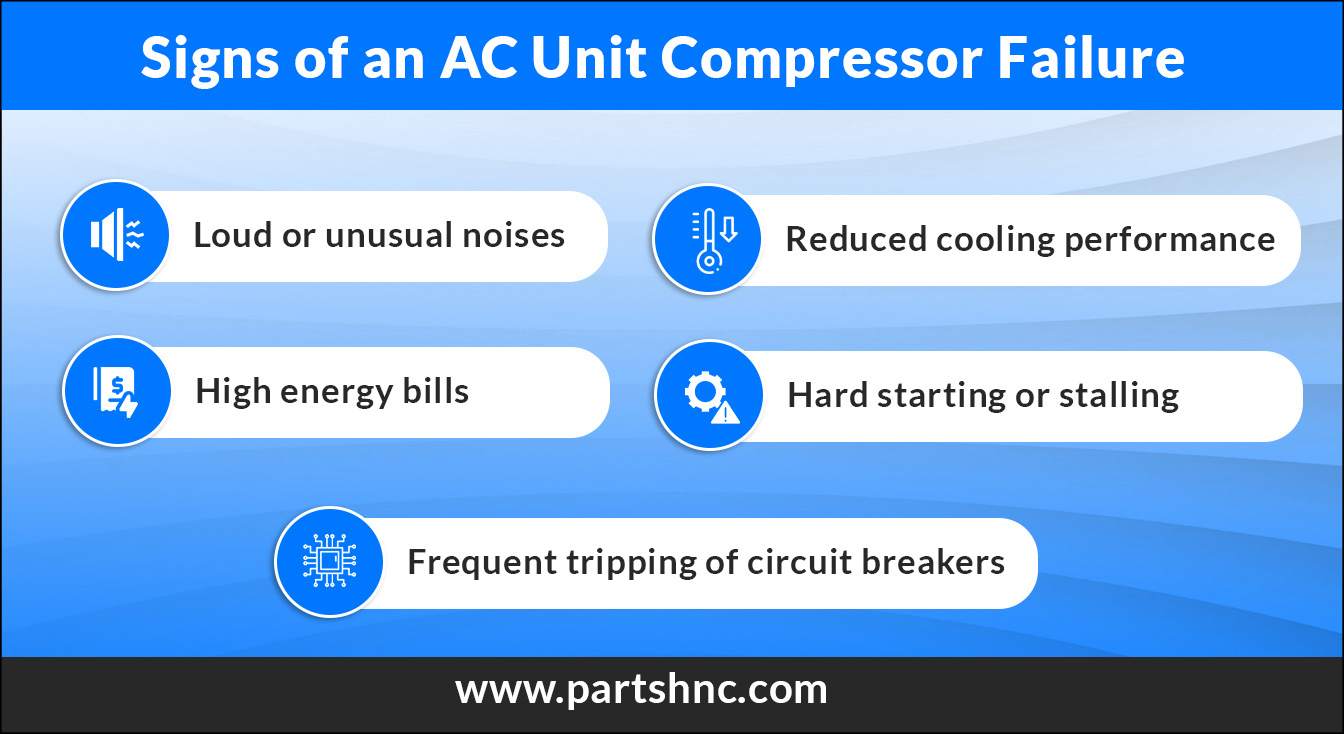
- Loud or unusual noises: If your AC unit compressor noise suddenly increases or makes grinding, rattling, or hissing sounds, it could indicate internal damage.
- Reduced cooling performance: If your home AC compressor is not cooling efficiently, it may have lost compression power or be low on refrigerant.
- Frequent tripping of circuit breakers: An air conditioner compressor overheating can trigger electrical trips to prevent further damage.
- Hard starting or stalling: The compressor may struggle to start or turn off unexpectedly, hinting at mechanical failure.
- High energy bills: Increased power consumption without a noticeable change in cooling suggests your AC system is under strain.
If you notice any of these AC compressor failure symptoms, act quickly to avoid complete system breakdowns.
What Causes AC Compressor Failure? - 9 Common Reasons?
AC compressor problems can happen for several reasons, and understanding the root causes helps prevent expensive repairs. Let’s take a deeper look at the most common culprits behind compressor breakdowns.
1. Electrical Problems
Electrical faults like faulty wiring, loose connections, or malfunctioning capacitors are among the primary causes of AC compressor failure. If wiring deteriorates or capacitors wear out, the compressor might not receive enough power to function correctly, leading to short circuits or total failure. Additionally, electrical surges or improper voltage can burn out the compressor motor.
Prevention Tip: Regularly inspect and tighten connections. Replace capacitors and ensure wiring is up to code.
2. Refrigerant Issues
Refrigerant is essential for the cooling process, but incorrect refrigerant levels are detrimental to the system. Too much refrigerant creates high pressure, stressing the compressor, while low refrigerant caused by leaks leads to poor cooling and extended compressor cycles, causing premature wear.
Prevention Tip: Hire a professional to detect refrigerant leaks and ensure proper recharging. Avoid DIY refrigerant refills that may cause overcharging.
3. Airflow Obstructions
Blocked airflow prevents the heat from escaping the system, forcing the HVAC compressor to work harder and longer. Over time, this can result in air conditioner compressor overheating and mechanical failure. Obstructions are usually caused by clogged air filters, blocked vents, or dirty condenser coils.
Prevention Tip: Replace air filters monthly and clean vents and outdoor units regularly to ensure unrestricted airflow.
4. Lack of Maintenance
Skipping routine maintenance allows small issues, such as refrigerant leaks or dirty coils, to escalate into major AC compressor problems. This negligence can lead to AC compressor failure as the system operates under compromised conditions.
Prevention Tip: Schedule regular professional inspections to detect and address issues early.
5. Overheating
Compressors generate significant heat during operation, and if the cooling mechanism fails, the system can overheat. Overheating might occur due to blocked condenser coils, inadequate ventilation, or excessively long running cycles. Once the internal components reach unsafe temperatures, permanent damage occurs.
Prevention Tip: Clean the condenser coils regularly and ensure the outdoor unit has proper ventilation to release heat efficiently.
Here’s the Replacement cost of an AC Compressor
6. Oil Imbalance
Oil ensures that the moving parts of the compressor remain lubricated. However, too much oil in AC compressor symptoms include reduced efficiency and damage due to improper lubrication. On the other hand, too little oil causes friction, leading to component wear.
Prevention Tip: Ensure that oil levels are correctly balanced during maintenance. Work with professionals who understand the correct oil-refrigerant ratios for your system.
7. Contamination
Moisture, dust, and debris inside the compressor can cause clogs and corrosion, leading to internal damage. Contaminated refrigerant can also block valves, causing the system to operate inefficiently. This contamination may arise from poor installation practices or exposure to environmental factors.
Prevention Tip: Use high-quality refrigerants and ensure proper installation to keep contaminants out.
8. Short Cycling
Short cycling happens when the compressor frequently turns on and off without completing full cooling cycles. It’s typically caused by an oversized system, faulty thermostats, or refrigerant issues. This constant starting and stopping increase wear on the compressor motor.
Prevention Tip: Diagnose thermostat issues early and ensure the compressor size matches your system requirements.
9. Wrong Compressor Size
Using a compressor that isn’t properly sized for your HVAC system leads to inefficiencies. If the compressor is too small, it will run continuously, causing overheating and wear. If it’s too large, it will short-cycle, increasing the likelihood of AC compressor failure.
Prevention Tip: Always consult an HVAC professional to install the right-sized compressor for your system.
Check out these: How To Replace AC Compressor
7 Ways You Can Prevent AC Compressor Breakdown
Proactive maintenance is key to extending your home AC compressor life and preventing costly replacements. Let’s explore practical steps to avoid AC compressor problems.
1. Clean the Air Filters Regularly
Clogged air filters block airflow, forcing the HVAC compressor to work harder to maintain cooling. Over time, this can cause overheating and damage internal components.
Solution: Replace air filters every 1-3 months, especially during heavy usage seasons.
2. Inspect Refrigerant Levels
Imbalanced refrigerant levels—either too much or too little—put stress on the compressor. Too much refrigerant creates high pressure, while insufficient refrigerant causes extended cooling cycles. Both scenarios reduce the compressor’s lifespan.
Solution: Schedule regular inspections to check refrigerant levels and address any leaks promptly.
3. Clean Condenser Coils
Dirty condenser coils can obstruct heat release, causing the air conditioner compressor to overheat. This forces the system to work inefficiently and may result in premature failure.
Solution: Clean outdoor condenser coils at least twice a year to prevent dirt buildup.
4. Check Electrical Components
Worn-out capacitors, faulty wiring, or loose connections are leading causes of AC compressor failure. Electrical problems can also trigger short cycling or total system shutdown.
Solution: Have an HVAC technician inspect the electrical components during annual servicing.
5. Ensure Proper Oil Levels
Too much or too little oil can disrupt the compressor’s performance. Too much oil in the AC compressor symptoms include sluggish operation and reduced lubrication, which can lead to damage over time.
Solution: Ensure oil levels are within recommended limits during maintenance checks. Avoid overfilling the compressor.
6. Use a Thermostat with Timers
Running your AC continuously strains the home AC compressor, leading to overheating and early wear. A thermostat with programmable timers can regulate cooling cycles effectively.
Solution: Set timers to avoid running the system longer than necessary, especially during off-peak hours.
7. Schedule Professional Maintenance
Regular inspections by a qualified HVAC technician help identify potential AC compressor problems early. Professional servicing also ensures the right oil balance, proper refrigerant levels, and clean electrical components.
Solution: Arrange for annual maintenance to detect and fix issues before they escalate.
Conclusion
An air conditioner compressor is central to your AC system’s operation, and any malfunction can quickly turn into a costly repair if left unresolved. Common reasons for AC compressor failure include electrical issues, refrigerant leaks, airflow blockages, and overheating. Monitoring AC compressor problem symptoms, such as unusual noises or poor cooling, helps you spot issues before they escalate.
Preventive maintenance is essential for keeping your home AC compressor in top shape. With routine care, proper ventilation, and regular inspections, you can minimize the risk of breakdowns and extend your compressor’s lifespan.
FAQs
How can I increase my AC compressor life?
To increase your AC compressor life, clean the air filters regularly, monitor refrigerant levels, and ensure proper airflow by maintaining the coils. Scheduling regular professional maintenance is also important for troubleshooting AC compressor problems early.
Why does the AC compressor keep going out?
An AC compressor may keep going out due to overheating, electrical problems, or refrigerant imbalances. Poor maintenance and airflow restrictions are other common reasons for AC compressor failure.
Why does my AC compressor keep dying?
If your AC compressor keeps dying, it could be caused by oil contamination, electrical faults, or an incorrect compressor size. Regular HVAC compressor inspections and proactive repairs are necessary to address these underlying issues before they worsen.
 Loyalty Program
Loyalty Program


